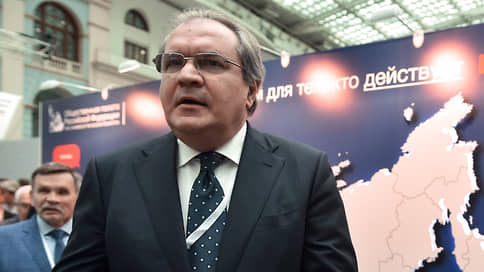This is a question of power – Kommersant
[ad_1]

Recently, there has been a frequent call to repeal Article 13 of the Russian Constitution, which prohibits state or mandatory ideology. It is even proposed to introduce the basic principles of some new ideology into the Constitution.
Obviously, Article 13 was written into the 1993 Constitution to finally bury the communist ideology that had dominated for seven decades. But a natural question arises: can the state and society exist without ideology at all? The outstanding Soviet, Russian jurist Academician Kudryavtsev, the centenary of his birth had just been celebrated, at the very decline of Soviet power, when the communist ideology was already dead, wrote about the inevitability of the birth of a new ideology. Kudryavtsev believed that this new ideology would be born internal social forces. It turned out a little differently.
All complex societies are shaped and directed by four intertwined social powers: political, economic, military, and ideological. (I am following here Michael Mann, one of the leading contemporary sociologists.) Ideology is the norms and values shared by members of society, it is the atmosphere, the air, the ether; what is possible and what is not, what is encouraged by the state, society or individual groups of society, and what is condemned or even prohibited. Ideology sets the coordinates of the life of society and the individual. Ideology is power!
After the collapse of the Soviet regime, social life was not de-ideologized. On the contrary, a powerful ideological system was built up, often decisively influencing the economy, education, culture, and even the military sphere.
In the government – the so-called liberal bloc, causing the constant sympathy of the “enlightened” public. The personal composition of this bloc could change, but not the direction of activity. This block was supported by several scientific centers, and in the public field by dozens of media outlets. Economic discussion became impossible. Under the communist government, at least they fought with opponents and dissidents who did not recognize dogmatic Marxism, they were somehow perceived, but now the progressives did not stoop to talking with “obscurantists”, they were simply ignored.
Several universities have become an ideological forge of cadres. Curricula and textbooks were carefully supplied by numerous foreign foundations, the most capable young employees were trained in reputable world universities. A new generation of economists and managers has grown up who studied at leading Russian universities or abroad. Formally, they received a good education. But only this education is ideologically verified: the environment in which they were immersed – their leaders, scientific authorities, customers, texts, etc. – has a clearly expressed ideological bias.
In the cultural sphere, the system of festivals, exhibitions, awards, served by a corporation of critics of prescribed views, has created standards by which alone success can be achieved.
Ideology even influenced military power: the reform of the army according to the Western model did not involve long-term hostilities; or remember the attempt to buy Mistrals from “friendly” France.
This construction, which has power, is not formally indicated in the socio-political field. This is not a party, not a public organization, not even a club. She seems to be out of politics. It’s like she doesn’t exist at all. But the figures involved in this construction have a good sense of who is theirs and who is a stranger.
The new ideology did not grow within the country, as Academician Kudryavtsev suggested, for the most part it was introduced from outside. We usually call this ideology liberalism, which, in my opinion, is somewhat insulting for classic true liberalism. It would be more correct to call this ideology native liberalism – a special export option for weak countries. And Russia, of course, is not the only country on which it has been imposed.
Craig Calhoun recalled the game of thimble. First, a shock transition to the market, which supposedly will very quickly solve all economic problems and improve the well-being of people. Did not work out? Oh, it’s so bad for you with democratic institutions, you need to carry out deep democratization as soon as possible. Doesn’t come out again? It means that you have problems with your culture and traditions – they do not allow you to build a modern developed society, change culture.
Now what? The past ideological structure is being destroyed. There is a struggle with the bearers of the old pseudo-liberal ideology: some figures have been declared foreign agents, someone has left, there are either five or eight former deputy prime ministers abroad, the policies of leading universities are being corrected, new history textbooks are being written.
The political and military decisions taken last year have a strategic basis. The old ideology worked to integrate Russia into the West. The new one assumes sovereignty and opposition to the West. Moreover, the new ideology will claim to be a global alternative. The West no longer controls the whole world. And not even for economic reasons, but because he lost his moral leadership. If the West’s claims to uphold “common” interests for the whole world are rejected, then this is no longer hegemony, but its failure.
There is no new ideology yet, it has just begun to be created, the well-known list of 17 values is only an indication of the direction of a possible search. The development of an ideology and its rooting in society will take a lot of time, so the introduction of ideological amendments to the Constitution seems premature.
[ad_2]
Source link








